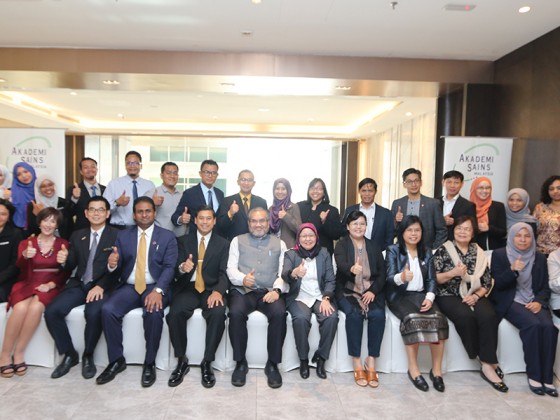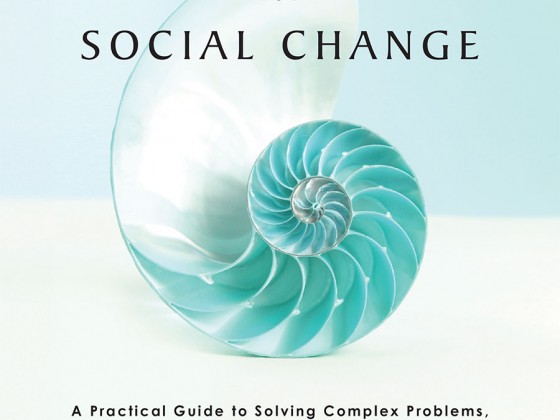In a career that spans well over four decades, YABhg Tun Ahmad Sarji Abdul Hamid has dedicated his whole life to the country’s nation building causes. Having served a number of high-profile roles, YABhg Tun Ahmad Sarji reached the pinnacle of his career as the Chief Secretary to the government. At the same time, YABhg Tun Ahmad Sarji was also the Secretary to the Cabinet and the Head of the Public Service sector. During his storied public service tenure, YABhg Tun Ahmad Sarji led by example, demonstrating humility and unwavering commitment to improving the sector. With the courage to take action on future driven insights, YABhg Tun Ahmad Sarji has greatly contributed to the improvement of processes and systems that have enabled a coherent people development strategy. In this edition of myForesight®, we recently caught up with the colossal figure to share his experience, views and wisdom on Islamic futures thinking.
Embracing technological innovation
Technology is the application of scientific knowledge for practical purposes. In the industry, “disruption” is disturbance or problems that interrupt an event, activity or process. There are many kinds of technologies we can talk about. We have a whole suite of new technologies across various sectors—communication, agriculture, engineering and many others with the ability to drive change. By and large, technology has enabled many sectors such as retail, manufacturing, medical, education, publishing, transportation, tourism and media to renew their advantage.
Meanwhile, the term “disruptive technology” has not been disputed much. Despite gaining widespread traction, the term refers to technological innovation with the capacity to significantly alter the way businesses, industries and consumers operate. In essence, a disruptive technology has three main attributes. Firstly, the technology displaces an older process, operation, product, procedure or habit. Secondly, it is often viewed to be superior to the older technology it replaces. Third, the technology is usually developed by upstarts or new entrants.
Let’s take information technology for example. We are now living in a borderless world and this has led to the creation of speedy dissemination of information. Long before the term was coined, Alexander Graham Bell’s invention of the “electrical speech machine” in 1876, which brought ground breaking change in the way people communicate, where physical distance was no longer a barrier for direct communication between people is an example of disruptive technology.
The invention of the humble “telephone” was the beginning of all the tech frenzy happening before our eyes now. Today, a smart phone is not only used to communicate, but is also used for a multitude of tasks, including financial transactions, photography and monitoring health data. Now, a company called Kardiac Mobile can instantly detect atrial fibrillation and heart rhythm with a 30 second ECG. Its customers can mail the report monthly and share it with a doctor for monitoring. The device has unlimited cloud storage of the ECG recording and then, there are unintended consequences of technology development. For example, the influence of social media and rapid communication on one hand have brought about so many changes. But on the other, the unintended consequences are also worrying. The spread of fake news, fitnah, producing false figures or images of people, which to me, pose damaging threats to the society’s morality. At this point, it is critical to think ahead of the unintended consequences technology can unleash to avoid such damage. Therefore, when we adopt technology, we have to be guided by principles that adhere to our moral and spiritual values. So, when we eventually adopt the technology, it will not lead to a decline in the moral and spiritual values we uphold.
In order to avoid this, I urge that due consideration be given to four principles as guidance. One is the principle of Halak, the creation. We need to promote the awareness that all resources for our use belong to our Creator. Second, we have to be mindful of the fact that human beings are khalifahs and we have to establish our roles as ‘trustees’ in this world. We are the managers of all the resources around us. Therefore, we need to behave in a way trustees do. The third principle is Mizan, or balance. Allah has created everything in balance. So to give you an example, if you have a technology, but it will be harmful to nature, leading to the pollution of rivers, causing vast deforestation, disturbing the ecosystem engine, this would only create an imbalance in the environment. As a consequence, this will upset the whole balance of the ecosystem. Yes, some might be unintended consequences of the technology adoption, but some might be intentional. The fourth one is that we must always be grateful. The reason being, being grateful teaches us to let go of our greed. We should be grateful for the resources provided by God—fresh air, clean water, flowing rivers and so on that were created to benefit us. We should be thankful of the sustenance provided and be cautious whenever we use technology as sometimes it might be harmful. If you adhere to these four principles, we can avoid and manage these somewhat costly unintended consequences.
Unintended consequences: are we ready?
Futurist, Roger Buckminster Fuller once wrote, “What better way to predict the future other than to create it”. Thinking about the future is central to the invention and adoption of technology. Surely we don’t want to have technology that would cause disasters or damaging effect on mankind and our natural resources. In Islam, we have principles aptly suited for future studies. Any new technology provides an opportunity to adapt, and Islam has a wide range of perspectives to pull from and the means to choose the best ones and act upon them. These principles are what we call maqasid syaria. In short, ‘maqasid syaria’ outlines five objectives. Ultimately, the goal of ‘maqasid syaria’ is the preservation of goodness and wellbeing. One is the protection of religion, Ad-deen. You cannot adopt a technology that would lead to disbelief or erode the noble principles of our religion. We have to protect the essence of our religion and the good life it promotes—even when we are persuaded by technology, given all kinds of logic and reasoning but are against our belief. The second principle is the protection of life. And that’s equally important when you adopt technology. You do not want to adopt a technological invention that is harmful to life, directly or indirectly. We have learned that some industrial technologies cause pollution to the air and rivers from which the water and air we breathe and consume. This could only harm our body system. We do not want that kind of technology. Protection of life is a priority. Then the protection of our mind—‘Aql; or the intellect. In this Fourth Industrial Revolution (4IR) era, technologies such as artificial intelligence (AI), data science, machine learning, automated algorithms are some of the latest developments in brain sciences. All these can be great tools to assist us, but, if not managed properly, could eventually compete with us in an unhealthy way and challenge human intelligence. But do we really need a technology that will supplant the mind? For profit pursuit should not neglect the most important part of the economy—people. And the fourth principle is the protection of our progeny and inheritance. For instance, new methods of fact finding, such as DNA analysis can resolve confusion over paternity or assist a family in the identification of unrecognizable burnt casualties. This is an example of a noble invention. For this, you have to carefully adopt the technology. Medical and scientific technologies could put our progeny at risk. Last but not least is what we call the protection of property which can be defined in many ways including natural resources and moveable and immoveable properties—belongings, wealth and others. These five principles in a way guide us for futures thinking. And I think if innovative technology and the adaptation of technology can take into consideration these five principles, the future will look much brighter.
Malaysia in 10 years’ time
It is difficult to predict how things will play out in 10 years’ time. To me, if technology goes unchecked, for example, social media is not monitored properly, especially its use by our younger generation, what would be the state of mind of our youth in 10 years’ time? With the unfettered spread of fake news and fitnah, is it really worthwhile to adopt an advanced technology at the expense of our moral integrity? So your guess is as good as mine on what will happen in the next 10 years.
Learning from the past
I’ve followed and witnessed various cycles of technology growth. In my view, the beneficial results are aplenty but so are the spill overs. A simple example, a factory plant that is not fit to manage its industrial processes produces polluting waste. Toxic substances are discharged to the environment, through chimneys into the air or through pipes to the surface water. The impact is detrimental to natural commodities such as air and rivers. Worse yet, there might be an underground seepage of chemicals that flows onto the ground and groundwater. In Malaysia alone, the number of factories has proliferated since independence. As factories’ capacities increase, so do their effusion. Another example is work force displacement, unemployment caused by automation, AI, and robotics in various sectors. Some might say that workers who move out of manufacturing, tend to get new jobs in sectors that are not vulnerable to automation such as arts, creative and services. However, these are jobs that require passion, creativity and social intelligence. The people whose jobs are in jeopardy, might not have the skills to take up interest in other areas. Despite this, we need to strike a healthy balance between the use of technology and the vitality of our human resource.
Science, technology and Islam…
Islam has always been supportive of scientific research that brings mutual benefits to mankind. But knowledge of science and technology that is largely harmful is highly discouraged. Thus, the Islamic view of technology and science is slanted towards the purposes they promote. Rather than a blanket doctrine, this approach is essential in maintaining integrity in a changing environment.
Given the clear and growing economic case of technology advancement, if science and technology can be used to formulate better means of attaining beneficial gains without any violation of Islamic principles that seek to preserve common good, there is no question about technology acceptance. However, as the pace of business accelerates and new models are exhausted more quickly, we need to measure and manage the vitality of our people, nature and industries to grow sustainably. And as the technology environment grows more complex and dynamic, a uniform approach isn’t sufficient. Instead, we need to apply a diverse set of approaches. This constant adaptation will promote prosperity. There is no reluctance as far as accepting a new technology is concerned. However, it may seem naïve to focus on adopting a new technology to improve processes and outcomes without weighing the consequences given the adverse conditions the society and environment face today.









